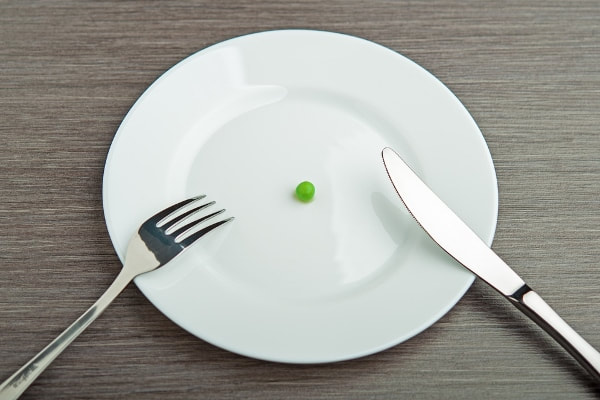Of course, there are many reasons to motivate something like this: it could be religious beliefs, health concerns, curiosity, or simply jumping on a bandwagon. Whatever the reason, giving up something is a conscious decision. Even if there is a certain level of pressure from society (e.g., religiously inspired abstention, or peer pressure), ultimately it is always your own decision to do so. Seen from this point of view, ‘going vegan’ is just an abstention without the time limit – although you should always give yourself the right to change your mind! – and not taking up smoking is akin to making a conscious choice to not get into the habit in the first place. At first sight, abstaining is all about the action of giving something up, holding your breath and sticking with it. Often this is followed by happily embracing the thing you gave up fully after the trying times are over. That would be all about personal power, being able to go all the way, and succeeding… a very competitive point of view. And once you have done it, you’ll happily go back to where you started from. The REAL goal is an entirely different one: it’s not so much a battle against your own cravings, but finding out something about yourself beyond your ability to persevere! Leaving something behind – if only for a while – gives you an opportunity to see these things or actions in a different light. You might just find that the prominent place they were afforded in your life is not warranted, and that they do not play as much of a role, really, as you thought. Or you might see that what you did as a matter of fact was unnecessary, or turns out to even be counterproductive. The whole point of the exercise is to take a step back and look at this thing from a more objective point of view. “I can do without as much fatty food”, “I actually can wake up without all that coffee”, “I don’t need to check messages all the time”… and the list goes on. Even long-held beliefs could be challenged this way: what about “someday I’ll read those books”, “I have to keep all those pens just in case” and the like? Beyond finding out those things about yourself, leaving out something for a while gives you a chance to make conscious choices at the end of the exercise as well: “Can I live without this permanently?”, “Could I reintroduce it at a lower level?”, “Am I happy to return to the where I was before this trial period?” All valid and important questions, and useful ones at that to address what can only be described as mental clutter. If you have enjoyed reading this, you may find these other articles interesting: Comments are closed.
|
Ask the ClutterMeisterIdeas to help clear away the mess in your homes and in your minds.
Feel free to share any of my posts, but please put in a backlink to the original blog post. Thank you. The author
Hi, my name is Tilo Flache. My mission: help clients declutter mind and space.
This blog contains pointers for your journey towards a happier living experience. Archives
November 2023
|



 RSS Feed
RSS Feed




